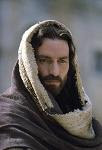 The Transfiguration of Christ by Raphael
The Transfiguration of Christ by Raphael “This is my beloved Son; listen to Him.”
(Mark 9:7)
On the mount of transfiguration, a cloud overshadowed Peter, James, John and Jesus who stood talking with Elijah and Moses. This cloud is reminiscent of (Exodus 19:16-20 / 24:15-18) when the presence of God came to Mount Sinai in the sight of all the people of Israel after they fled Egypt. It was quite a scene and rightly so, the people trembled (verse 16), but later (verse 21), their curiosity almost got the better of them.
God had to send Moses back down the mountain to warn the people to stay back of the borders God set up for their safety. Does that sound familiar today? God has indeed set boundaries for us as His followers and always, obedience to God’s word is for our wellbeing, safety, protection, and growth. Obedience is not a burden, it is blessing for us from God.
Six days after Peter’s true confession and smack-down, Jesus singles-out Peter, James and John, and takes them to a high mountain alone where they see Jesus transfigured. “His clothes became radiant, intensely white, as no one on earth could bleach them.”(Mark 9:3)
In our Japan apartment, we have a—need I say—small, washer/dryer unit. And, believe me, I am happy to have it! Every week I run two loads of laundry—whites and colors. The hotel provides laundry soap, so again, I can’t complain; but they don’t give us any bleach. I am certain the hotel uses bleach because sometimes I smell chlorine in the brilliant towels we receive daily. On Monday (Getsuyobi—Japanese), housekeeping makes our bed with clean, super bright, white sheets. We love crawling into bed on Monday nights because there are no wrinkles—our sheets are crisp, fresh pressed and taut—unlike any other night after the first use. Wrinkles happen don’t they? And sometimes you just have to get rid of the wrinkles and start fresh. We sometimes have to change from going in a wrong direction to a right one. We sometimes have to stop ungodly behavior and make godly choices instead. But in the scope of eternity, those things alone are not enough. No bleach on earth, can remove the crimson stain of sin or bridge the gap between our sin and God's righteousness. Only God could do that, and He did--by sending Jesus Messiah as the payment for all sin.
King David knew only God could wash away his sin and make him whiter than snow. (Psalm 51:7) The interesting thing is that people condemn God as being judgmental and unreasonable. When in fact, the opposite is true. “Come now, let us reason together, says the LORD: though your sins are like scarlet, they shall be as white as snow; though they are red like crimson, they shall become like wool. If you are willing and obedient, you shall eat the good of the land;” (Isaiah 1:18-19a) Are you in need of God's washing today? Do as David did; confess, repent and return to the LORD. He alone has the means to wash us and make us whiter than snow.
Back to laundry: one thing I’ve noticed is my white bathrobe and socks are graying. I don’t like that. I am buying Clorox today! Yesterday, I accidently washed one white pair of Dewayne’s underwear with his black jeans. The underwear emerged as Gandalf the Grey instead of the White.
If you remember the LOTR Two Towers movie: Aragorn, with Legolas and Gimli tracked Merry and Pippin into Fanghorn forest and encountered the radiant Gandalf transformed from the Grey to the more powerful White Wizard. Later in the film, Gandalf’s brilliance overcomes the evil spirit, which held Theoden King captive. Finally, his beaming light leads the Riders of Rohan in a victory against the evil Orcs. I like that. White is the color we associate with purity, strength, holiness and goodness triumphing over evil. I have seen several wedding processions in Japan. The brides have all been dressed in traditional gleaming, white, wedding kimonos. From head to toe they are symbolically clothed in purity, with only their angelic faces showing. I wonder if at the transfiguration, and seeing the brilliance of Jesus, did the disciples remember God's promise, "I will make you as a light for the nations, that my salvation may reach to the end of the earth." (Isaiah 49:6) or the statement of Jesus? “I am the light of the world.” (John 8:12)
Here on this familiar mountain with these three disciples, the ominous cloud has come down, Jesus has been transfigured and his clothing changed to a white, which no one on earth could bleach. This is a peek-a-boo into the heavenly realm. Our bodies will be transformed to bodies suited for heaven. We will be clothed in the pure righteousness of Christ and remain recognizable. I like that—seeing a familiar face is always a happy thing—even on Skype. But, in heaven it will be all the more sweet, as we will be more acutely aware of God’s presence, and we will never again carry the burden of this earth-bound body, or face the dark and dirty of a deceitful heart kept in a deteriorating shell.
I love the response of the disciples here. They were freaked-out. And, as Peter must have related this story in the hearing of Mark and others, I can just imagine Peter sharing: “We were terrified. We didn’t know what to do or say. So then, I blurted out; Master this is so good for us to be here. Let’s build three tents, one for you, Moses and Elijah!” (My dialogue rewrite J)
Peter’s nervous enthusiasm came to a screeching halt when the voice happened. They heard the voice, and it shut Peter up. The voice spoke the truest confession about Jesus, and delivered the best instruction to Peter; “This is my beloved Son; listen to Him.” The voice had its effect to quiet the disciples on the mountain, but also it kept them quiet as they descended into the valley.
It is always so comforting to hear from God in our mountain top experiences, when we are retreating, in prayer or having quiet time and studying scripture. But it is also, and perhaps even more so, comforting to hear from God in our moments in the valleys of life. His word, never changing as He is never changing, remains with us in our most difficult times. We are never alone and need never remove ourselves from God's nearness. God gives more grace when we repent, humble ourselves, resist the devil and draw near to Him, (James 4:6-10).
Jesus charged Peter, James and John to tell no one what they had seen until after the Son of Man had risen from the dead. The men kept this matter to themselves—they wondered what Jesus meant by rising from the dead. Later, after Jesus was crucified and buried, I wonder if these words of Jesus on this mountain of transfiguration came back to comfort them or at least give them a glimmer of hope for His resurrection. In our lives, those quiet moments, those mandates from God’s word can become a source of strength in times of despair. "Revive me, O LORD, according to your word...You are my hiding place and my shield; I hope in Your word," (Psalm 119:107, 114 NKJ).
Later in life, Peter wrote with Apologetic overtones—defending his faith—he described the voice as coming from the “Majestic Glory” (2 Peter 1:16-18).
The voice of God comes to us today from the majestic glory of His word and through illumination from His Holy Spirit. When we read, study and memorize God’s word, we are confident we are hearing form the Living God. How can we be so sure? Because, Jesus said about the Holy Spirit, “He will teach you all things and bring to your remembrance all that I have said to you.” (John 8:26) The Holy Spirit leads us into truth. During one of His most intense prayer times to the Father, Jesus said, “I have given them the words that You gave me, and they have received them and have come to know in truth that I came from You…” (John 17:8). Jesus gave us the true confession from the Father of Himself and that confession continues today through the Holy Spirit. The three persons of the Trinity are at work in our relationship with Jesus and every time we read God’s word. Also, we know, as we heed His message, His words become our life.
(One More True Confession--Next Post)























